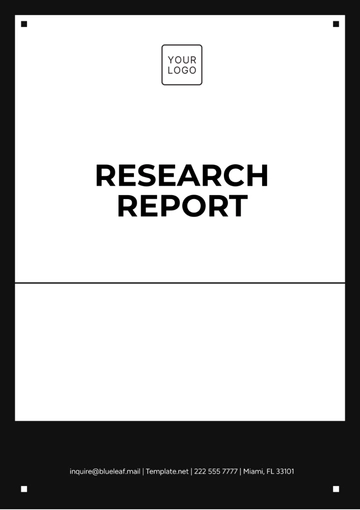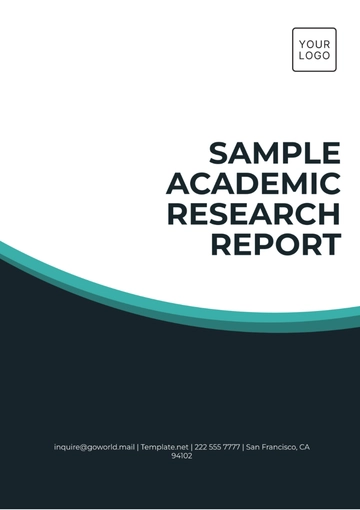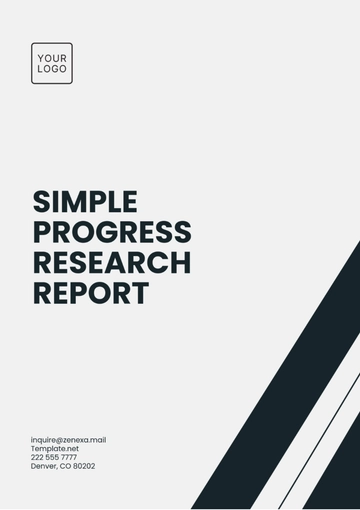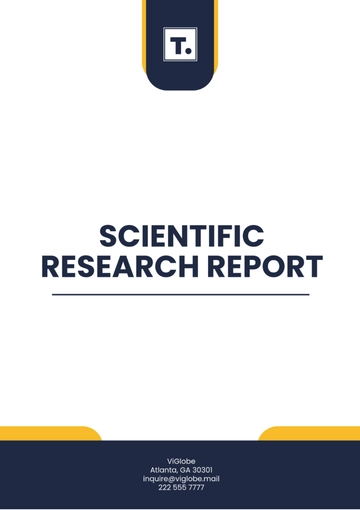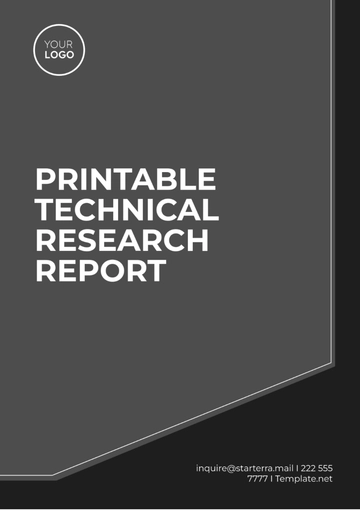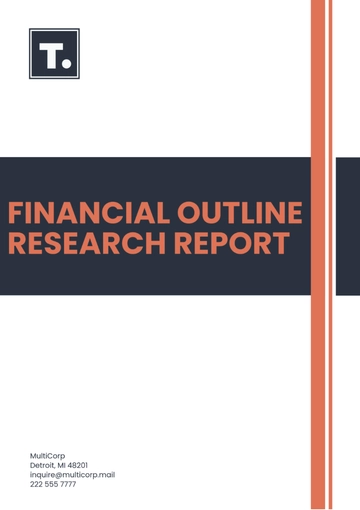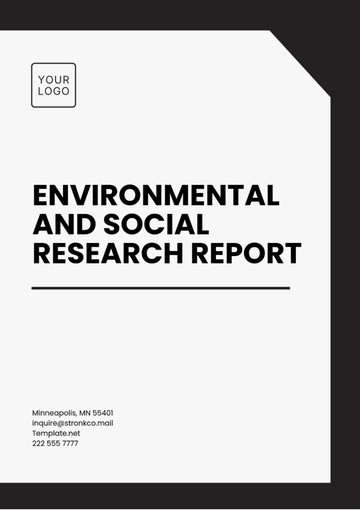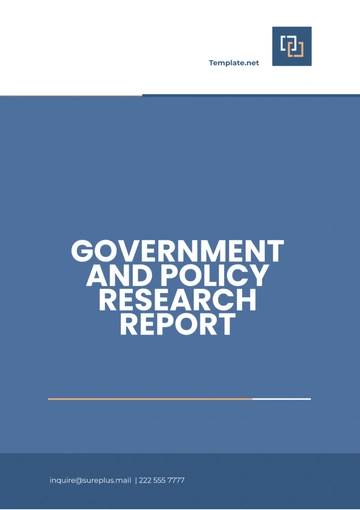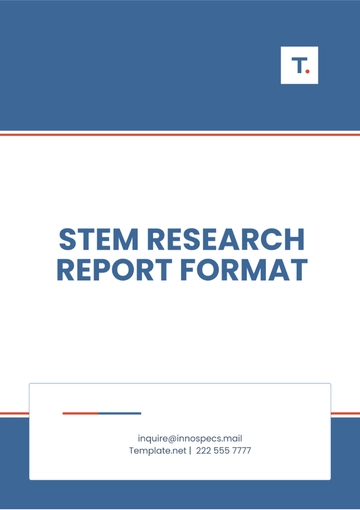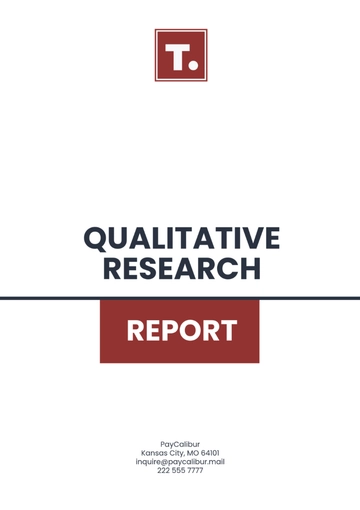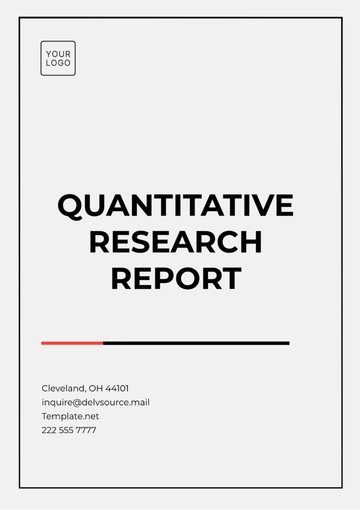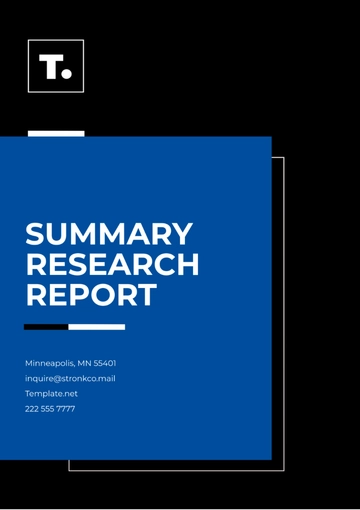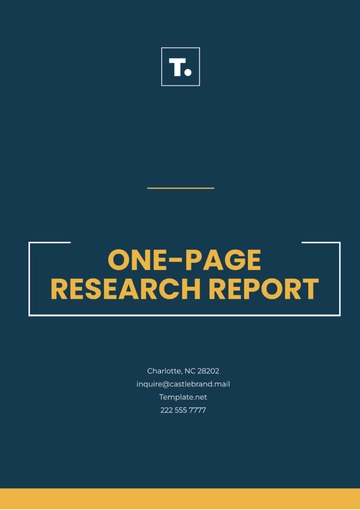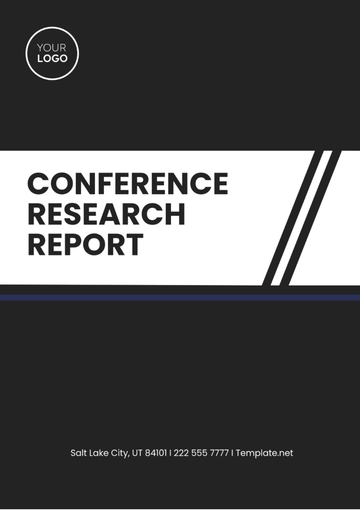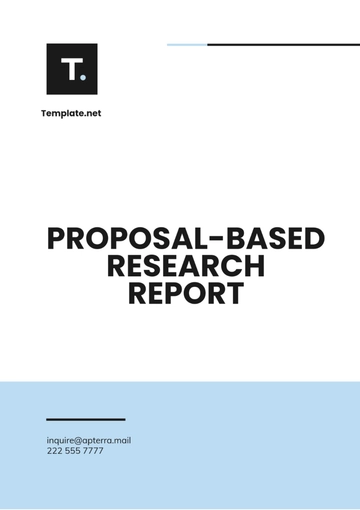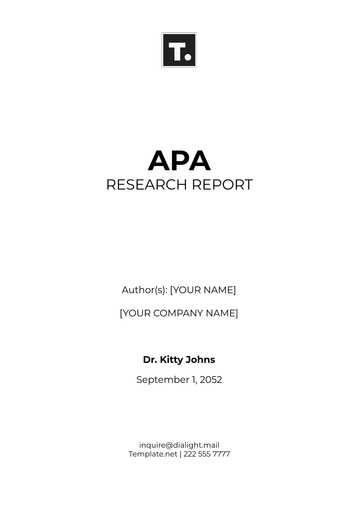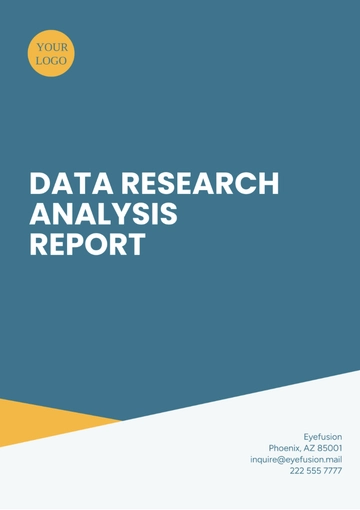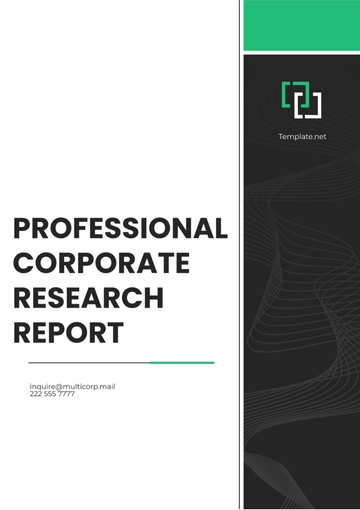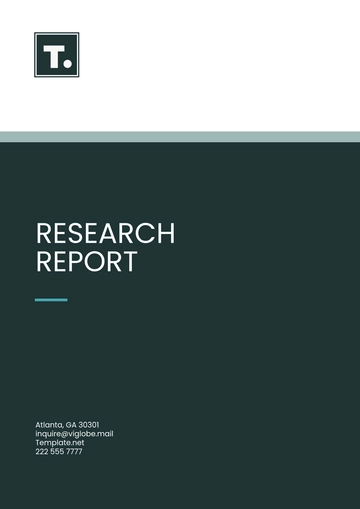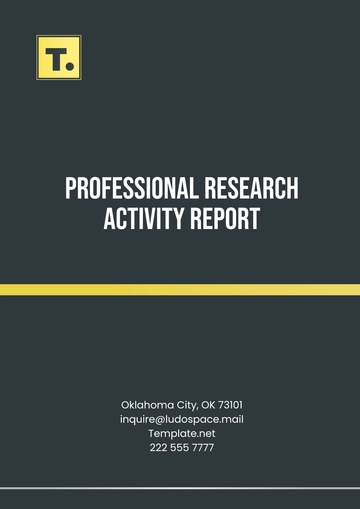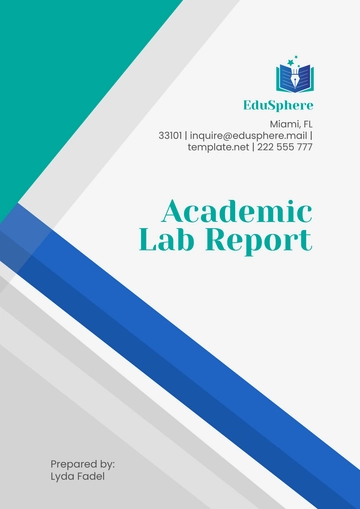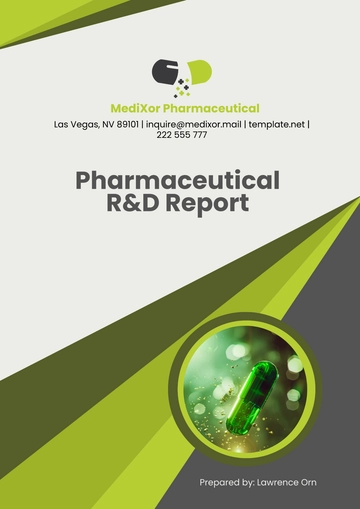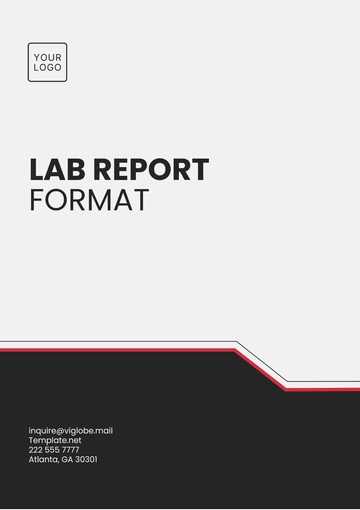Free Legal Client Research Report
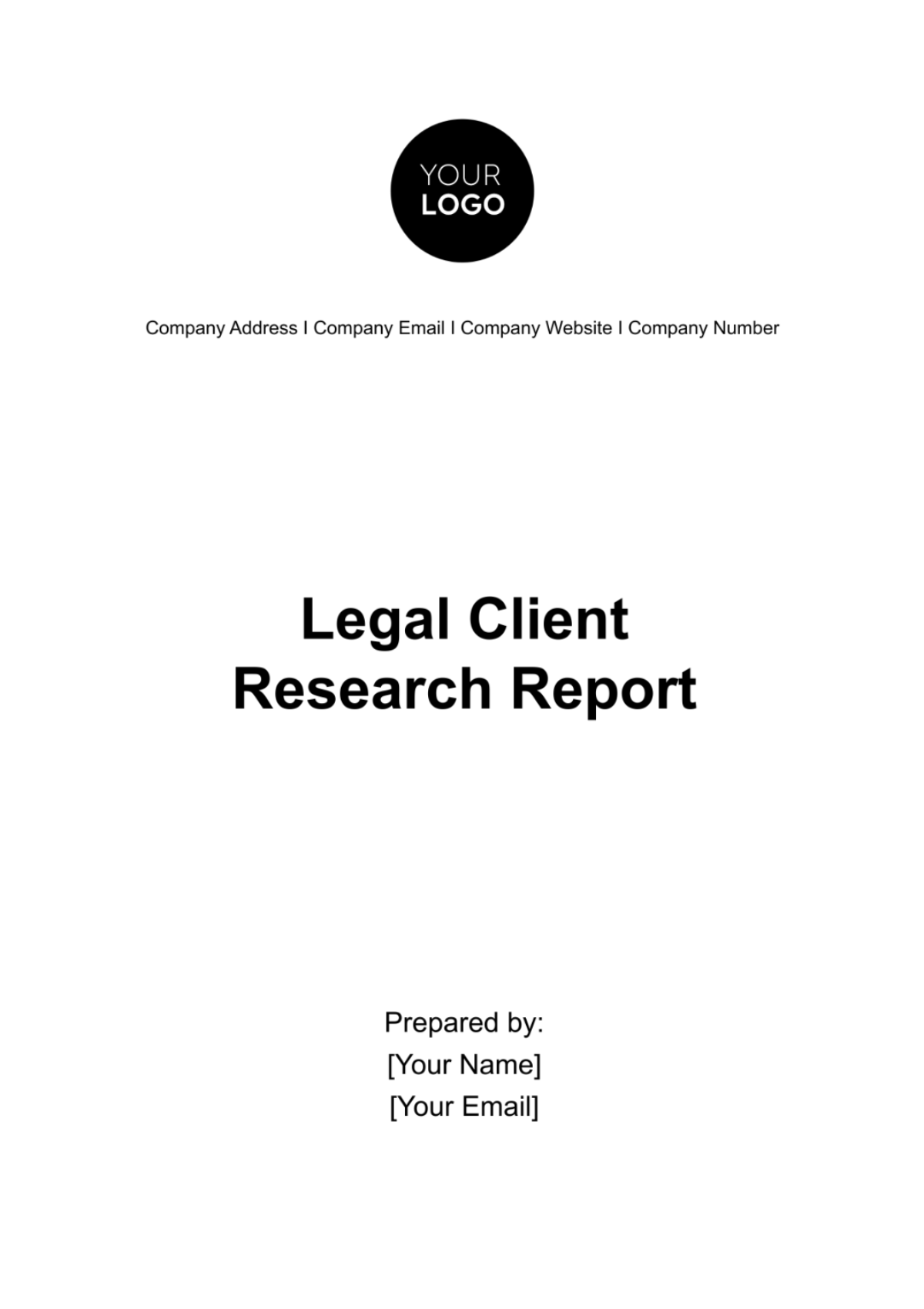
I. Executive Summary
We conducted comprehensive legal research to address specific issues concerning regulatory compliance within the technology sector. Our objectives were to understand the applicable legal frameworks, identify potential risks, and develop strategic recommendations to ensure compliance and mitigate legal exposure.
Our findings indicate that there are multiple areas of regulatory concern that require immediate attention, including data protection, intellectual property rights, and antitrust regulations. We have identified several legal precedents and relevant statutes that inform our legal strategy moving forward.
Based on our research, we recommend a series of actions to enhance compliance measures, protect intellectual property, and address potential antitrust issues. These actions include revising data handling procedures, conducting a comprehensive IP audit, and reviewing partnership agreements to prevent antitrust violations.
II. Introduction
A. Purpose of the Report
The purpose of this report is to present the findings of our legal research aimed at identifying and addressing key regulatory compliance issues within the technology sector. This report serves as a guide for strategic decision-making and risk management.
B. Research Objectives
To outline the applicable legal and regulatory frameworks.
To identify potential legal risks and liabilities.
To provide actionable recommendations for compliance and risk mitigation.
C. Scope of the Report
This report focuses on three main areas: data protection laws, intellectual property rights, and antitrust regulations. It covers relevant federal and state laws, as well as pertinent case law and administrative guidelines.
III. Methodology
A. Research Methods
We employed a multifaceted research approach, including a review of legal databases for relevant statutes and case law, consultations with legal experts in the technology sector, and an analysis of regulatory guidance documents.
B. Selection Criteria
Sources were selected based on their relevance to the technology sector, authority, and recency. Priority was given to primary sources, such as statutes and court decisions, followed by secondary sources like legal commentaries and expert analyses.
C. Data Collection and Analysis
Data was systematically collected and analyzed to ensure comprehensive coverage of the legal issues. This process involved categorizing information by legal area, evaluating the implications of legal precedents, and synthesizing findings to inform our recommendations.
IV. Legal Framework and Background
A. Data Protection Laws
In the United States, the primary legal framework governing data protection includes the General Data Protection Regulation (GDPR) for entities operating in the European Union, the California Consumer Privacy Act (CCPA), and the Health Insurance Portability and Accountability Act (HIPAA) for health-related information. These statutes mandate stringent data handling, privacy notifications, and consumer rights regarding personal data.
B. Intellectual Property Rights
U.S. intellectual property law is governed by the Patent Act, the Copyright Act, and the Lanham Act, which protect inventions, literary and artistic works, and trademarks, respectively. These laws provide a foundation for protecting the organization's intellectual property and addressing potential infringement by third parties.
C. Antitrust Regulations
The Sherman Act, the Clayton Act, and the Federal Trade Commission Act form the core of U.S. antitrust law. These statutes aim to prevent anti-competitive practices, monopolies, and other activities that could harm consumer interests and market competition.
V. Analysis and Findings
A. Legal Issues
Our research identified critical legal issues in data protection, where non-compliance with GDPR and CCPA regulations could lead to significant financial penalties and reputational damage. In intellectual property, the challenge lies in adequately protecting proprietary technologies and addressing infringement risks. Antitrust concerns revolve around compliance with federal regulations to avoid practices deemed anti-competitive.
B. Analysis of Relevant Case Law, Statutes, and Legal Doctrines
Data Protection: The application of GDPR and CCPA requires comprehensive data governance policies. Recent case law highlights the importance of consent mechanisms and the rights of data subjects to access, delete, or transfer their data.
Intellectual Property: The Supreme Court's decisions in cases like Alice Corp. v. CLS Bank International have clarified the standards for patentable subject matter, impacting how technology patents are evaluated and enforced.
Antitrust: The U.S. Department of Justice's guidelines and case law, such as United States v. Apple Inc., provide insights into how joint ventures and agreements might be viewed under antitrust laws, emphasizing the need for careful structuring of business practices and partnerships.
C. Comparative Analysis of Different Jurisdictions
A comparative analysis reveals significant differences in data protection laws between the United States and the European Union, particularly in the breadth of consumer rights and enforcement mechanisms. In intellectual property, the U.S. system's focus on innovation contrasts with other jurisdictions that may have more stringent or less comprehensive protections. Antitrust laws also vary, with the EU generally adopting a more aggressive stance towards monopoly prevention and digital market regulation.
VI. Client-Specific Implications
The legal research findings have several direct implications for our operations, highlighting areas where immediate action is required to ensure compliance, protect assets, and mitigate risks. Understanding these implications is crucial for developing effective legal and operational strategies.
A. Assessment of Legal Findings in the Context of Our Situation
Legal Area | Finding | Implication for Us |
Data Protection | Non-compliance with GDPR and CCPA can lead to significant penalties. | We must enhance our data handling procedures to comply with these regulations, focusing on consumer rights and data security. |
Intellectual Property | Supreme Court rulings have clarified patentable subject matter standards. | We should conduct a comprehensive audit of our IP portfolio to ensure our patents meet these standards and address any gaps. |
Antitrust | U.S. antitrust laws emphasize preventing anti-competitive practices. | Reviewing our partnership agreements and business practices is essential to ensure compliance and avoid potential litigation. |
The table above outlines the key legal findings and their implications for our organization. For data protection, ensuring compliance with GDPR and CCPA is paramount, necessitating an overhaul of our current data management practices. In the realm of intellectual property, the evolving standards for patent eligibility require us to reassess our IP portfolio to safeguard our innovations. Antitrust concerns necessitate a careful examination of our business arrangements to prevent practices that could be viewed as anti-competitive.
B. Potential Legal Risks, Opportunities, and Strategies
Risk/Opportunity | Description | Strategy |
Risk: Data Breach | Non-compliance leading to data breaches could result in fines and reputational damage. | Implement advanced cybersecurity measures and regular compliance audits. |
Opportunity: IP Enhancement | Strengthening our IP portfolio can provide a competitive edge and additional revenue streams. | Conduct an IP audit and pursue strategic patents and trademarks. |
Risk: Antitrust Violations | Engaging in anti-competitive practices could lead to investigations and penalties. | Review and adjust business practices and agreements to ensure compliance with antitrust laws. |
This table highlights potential risks and opportunities arising from our legal environment and outlines strategies to address them. Enhancing data security and compliance measures is critical to mitigate the risk of data breaches and associated penalties. In intellectual property, proactively managing and expanding our IP portfolio presents an opportunity to solidify our market position and explore new revenue avenues. Antitrust concerns require diligent review and adaptation of our business practices to prevent legal challenges and ensure competitive fairness.
VII. Recommendations
Based on the comprehensive analysis of the legal framework, findings, and the specific implications for our situation, we put forth the following recommendations to address identified risks, capitalize on opportunities, and ensure compliance with relevant legal standards:
Enhance Data Protection Measures: Implement state-of-the-art cybersecurity protocols, update privacy policies, and ensure all data handling practices are in full compliance with GDPR, CCPA, and other relevant data protection laws.
Conduct an Intellectual Property Audit: Perform a thorough review of our current intellectual property portfolio to identify gaps, opportunities for enhancement, and potential areas of risk. Prioritize securing patents that align with current standards for patentability and business objectives.
Review and Adjust Business Practices for Antitrust Compliance: Undertake a detailed review of existing partnership agreements, pricing strategies, and market practices to identify and rectify any potential antitrust issues. Engage in training and awareness programs for key personnel on antitrust laws and compliance.
Develop a Compliance Monitoring Program: Establish an ongoing compliance monitoring program that includes regular legal audits and reviews to adapt to changing laws and regulations.
Leverage Legal Expertise for Strategic Planning: Engage with legal experts in data protection, intellectual property, and antitrust law to inform strategic planning and decision-making processes.
VIII. Conclusion
The legal landscape in which we operate is complex and constantly evolving, presenting both challenges and opportunities. Our research has highlighted critical areas of concern in data protection, intellectual property, and antitrust law that require immediate and strategic attention. By addressing these areas proactively, we can not only ensure compliance and mitigate risks but also strengthen our market position and secure our long-term success. The recommendations provided offer a roadmap for navigating the legal challenges ahead. As we move forward, it will be crucial to remain vigilant, adaptable, and committed to upholding the highest legal and ethical standards in all aspects of our operations. This commitment will serve as the foundation for our continued growth and success in the dynamic and competitive landscape of the technology sector.
- 100% Customizable, free editor
- Access 1 Million+ Templates, photo’s & graphics
- Download or share as a template
- Click and replace photos, graphics, text, backgrounds
- Resize, crop, AI write & more
- Access advanced editor
Unlock the potential of your legal research with the Legal Client Research Report Template from Template.net. This template is fully editable and customizable, allowing you to tailor it to your specific needs. Editable in our AI Editor tool, it streamlines your reporting process, ensuring a professional and comprehensive analysis.
You may also like
- Sales Report
- Daily Report
- Project Report
- Business Report
- Weekly Report
- Incident Report
- Annual Report
- Report Layout
- Report Design
- Progress Report
- Marketing Report
- Company Report
- Monthly Report
- Audit Report
- Status Report
- School Report
- Reports Hr
- Management Report
- Project Status Report
- Handover Report
- Health And Safety Report
- Restaurant Report
- Construction Report
- Research Report
- Evaluation Report
- Investigation Report
- Employee Report
- Advertising Report
- Weekly Status Report
- Project Management Report
- Finance Report
- Service Report
- Technical Report
- Meeting Report
- Quarterly Report
- Inspection Report
- Medical Report
- Test Report
- Summary Report
- Inventory Report
- Valuation Report
- Operations Report
- Payroll Report
- Training Report
- Job Report
- Case Report
- Performance Report
- Board Report
- Internal Audit Report
- Student Report
- Monthly Management Report
- Small Business Report
- Accident Report
- Call Center Report
- Activity Report
- IT and Software Report
- Internship Report
- Visit Report
- Product Report
- Book Report
- Property Report
- Recruitment Report
- University Report
- Event Report
- SEO Report
- Conference Report
- Narrative Report
- Nursing Home Report
- Preschool Report
- Call Report
- Customer Report
- Employee Incident Report
- Accomplishment Report
- Social Media Report
- Work From Home Report
- Security Report
- Damage Report
- Quality Report
- Internal Report
- Nurse Report
- Real Estate Report
- Hotel Report
- Equipment Report
- Credit Report
- Field Report
- Non Profit Report
- Maintenance Report
- News Report
- Survey Report
- Executive Report
- Law Firm Report
- Advertising Agency Report
- Interior Design Report
- Travel Agency Report
- Stock Report
- Salon Report
- Bug Report
- Workplace Report
- Action Report
- Investor Report
- Cleaning Services Report
- Consulting Report
- Freelancer Report
- Site Visit Report
- Trip Report
- Classroom Observation Report
- Vehicle Report
- Final Report
- Software Report
